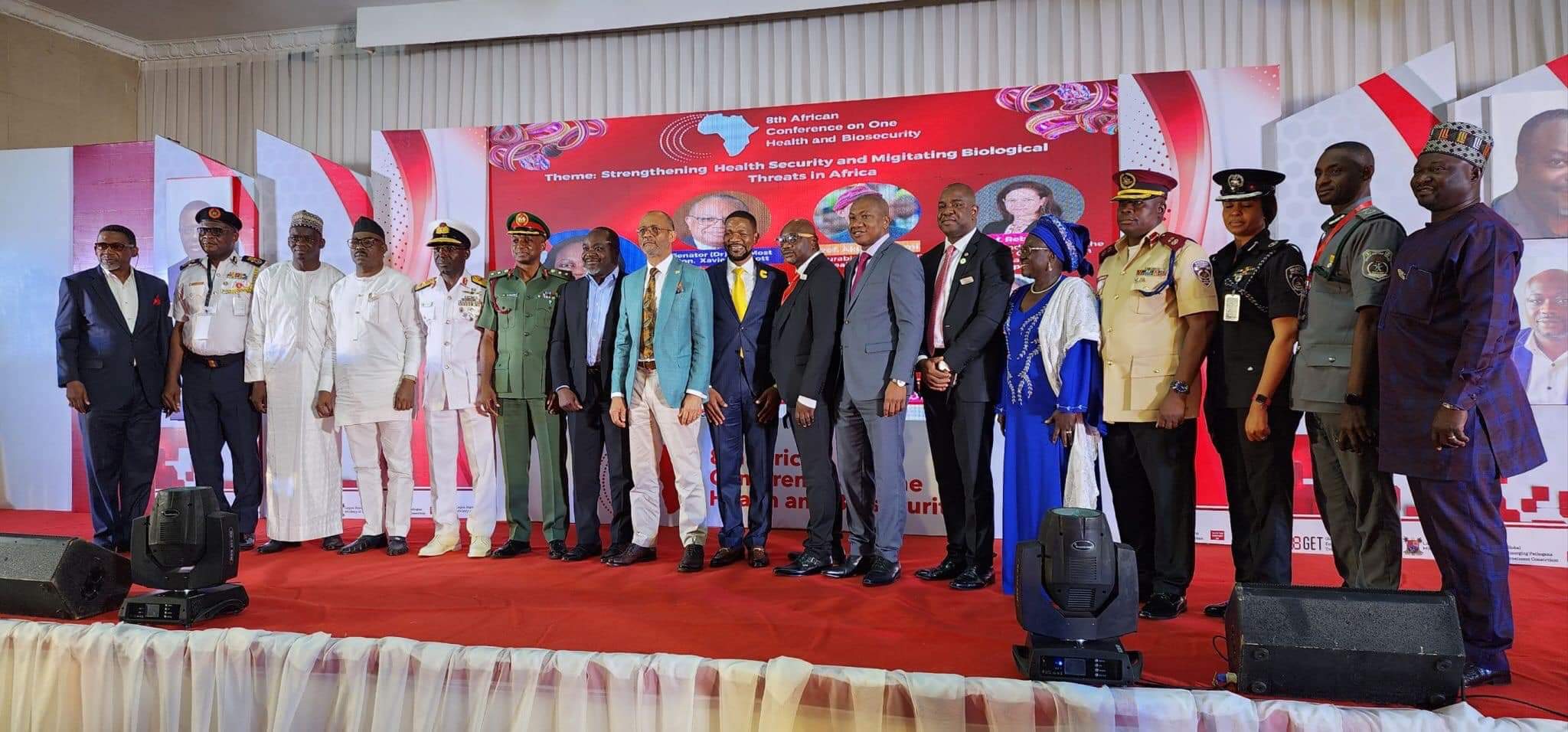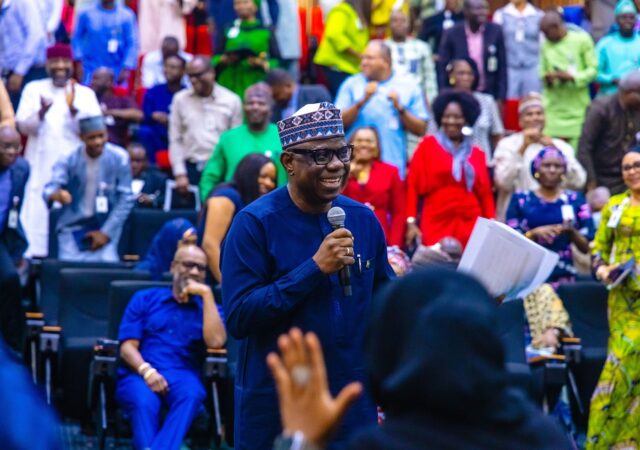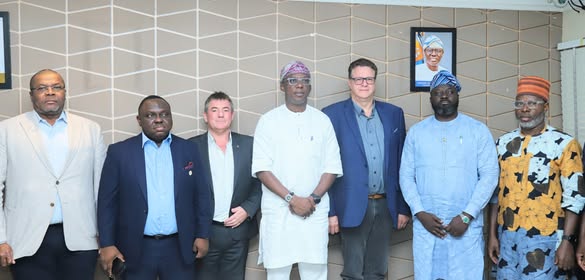“We are facing the greatest threats to human existence in the form of biological threats”
‘If infectious diseases are used as bioweapons, it could trigger extremely disastrous consequences’, Prof Akin Abayomi, Lagos State Commissioner of Health.
That was the submission of various speakers on Day One of the ongoing 8th African Conference on OneHealth organized by Global Emerging Pathogens Treatment (GET) Consortium and the Lagos State Government through its Ministry of Health with the theme “Strengthening Health Security and Mitigating Biological Threats in Africa”
‘Hepatitis and other infectious diseases such as ebola, marburg fever, monkey pox are exacerbated by climate change’, Dr Richard Munang, Deputy Regional Director of UNEP
Welcoming participants to the Conference, Dr Dotun Bobadoye, the Chief Operating Officer of GET Consortium disclosed that with the increase in frequency and intensity of biological threats through infectious diseases, there is no better time to bring together experts to discuss how to manage all these emerging threats.
Lagos State Governor, Babajide Sanwo-Olu as Chief Host stated that Lagos State had garnered experience from managing the Ebola Outbreak which helped the state to be able to quickly ramp up to combat the Covid19 pandemic.
In his speech, delivered by the Commissioner of Health, Prof Akin Abayomi, the governor, who is also described as the Incident Commander, revealed that the state is still expecting a 6th Wave of the Covid19 pandemic and with the recent Monkeypox scare and ongoing waves of epidemics in Sierra Lone and Uganda, have also realised that biosecurity has become a must for the global community.
To combat this, the Lagos State government has designed an integrated biosecurity plan hinged on three pillars; Health Systems Strengthening, Genomic Sequencing and Infectious Diseases Research.
That plan, according to Prof. Akin Abayomi is predicated on evolving strategies that would keep the disease burden at a manageable level for the State’s health systems.
This, said the Commissioner of Health, made the state to constitute a Biological Governance Council. ‘Lagos is vulnerable to biological threats and and unfortunately, the nature of the state means we can’t close down economic activities. We therefore need to build economic resilience to combat biological shocks and build appropriate infrastructure to strengthen our health systems so we can flatten the curve in managing dangerous pathogens’.
In his address, Prof Abayomi stated that the combination of emerging infectious disease outbreaks and climate change poses a huge risk and Nigeria must drastically cut down on its carbon emissions to avoid overstepping the threshold in 10 years.
Over 40million people slipped into Poverty during the Covid19 pandemic, says Dr Richard Munang, Deputy Regional Director of the United Nations Environment Programme (UNEP).
Speaking at the Conference, Dr Munang disclosed that biosecurity threats cost Africa millions of dollars every year, with the world heading towards an apocalypse.
“We need to deliver solutions that are actually reducing the impact of negative climate situations on Agriculture, Infrastructure and Livelihoods. Africa needs to unlock the power of her market incentives through climate action investment plans with simple solutions like Solar Energy able to drive better climate change solutions”, says Dr Munang.
The UNEP representative stated that with global issues like climate change, environmental degradation and pollution, the OneHealth Approach is an integrated solution that can create a strategic pathway to mitigate against biological threats.
Participants at the conference were offered a plethora of side events and trainings, including Introduction to Data Management, BioSafety and Biosecurity, Infection and Prevention Control, facilitated by Stat-Consult International, Nigerian Biological Safety Association and Drasa Trust respectively.
The Conference continues on November 3rd and 4th at the Civic Centre, Victoria Island, Lagos.
Biological Threats have come to be seen as the next global issue which needs o be tackled








Your article helped me a lot, is there any more related content? Thanks!
Your article helped me a lot, is there any more related content? Thanks!